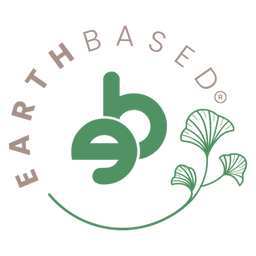The Vegan Vichaar series aims to address common queries regarding veganism, focusing on the environmental ramifications of various industries. One significant sector that warrants attention is the dairy industry, especially in a country like India, where dairy consumption is deeply rooted in cultural practices. This blog will delve into the environmental impact of the dairy industry in India, highlighting key issues based on recent research and findings.
Understanding the Dairy Industry in India
India is the largest producer of milk globally, accounting for about 22% of the world’s total milk production. Dairy farming is not just an economic activity; it is a way of life for millions of farmers. While dairy provides a livelihood for many, the environmental costs associated with its production are profound and multifaceted.
Greenhouse Gas Emissions
One of the most critical environmental concerns related to the dairy industry is its contribution to greenhouse gas emissions. According to a study published in Environmental Research Letters, the dairy sector is a significant contributor to methane emissions, a potent greenhouse gas that is approximately 28 times more effective than carbon dioxide at trapping heat over a 100-year period .
In India, methane emissions from dairy cows primarily arise from enteric fermentation—a natural digestive process in ruminants where microbes in the stomach break down food. This process results in methane being expelled during digestion. The International Dairy Federation estimates that dairy farming contributes around 11% of total greenhouse gas emissions globally, and this figure is mirrored in India due to its extensive dairy farming practices.
Land and Water Usage
The dairy industry also demands significant land and water resources. The growing population in India has resulted in an increase in milk consumption, which in turn requires more land for grazing and growing feed crops. A report from the Ministry of Agriculture and Farmers' Welfare indicates that livestock grazing and feed production account for nearly 80% of the total land used for dairy production in India .
Water is another critical resource affected by the dairy industry. Producing one liter of milk requires approximately 1,000 liters of water when considering the water needed for the cows, their feed, and other resources. In regions of India facing severe water scarcity, such as Rajasthan and Gujarat, the strain on water resources is unsustainable and threatens local communities' water supply .
Biodiversity Loss
The expansion of dairy farming leads to habitat destruction and biodiversity loss. To make space for more dairy farms, natural habitats are often cleared, which disrupts local ecosystems and threatens native species. The conversion of forests and grasslands into agricultural land for cattle feed contributes to the loss of biodiversity, making it increasingly difficult for wildlife to thrive.
Soil Degradation
Intensive dairy farming practices can also lead to soil degradation. Overgrazing by livestock can cause soil compaction, reducing its fertility and disrupting the natural ecosystem. Furthermore, the application of chemical fertilizers and pesticides to grow feed crops can lead to soil contamination and further degrade soil quality .
Air Pollution
The dairy industry contributes to air pollution through ammonia emissions from manure. Ammonia can react with other compounds in the atmosphere, leading to the formation of fine particulate matter that poses health risks to humans and animals alike. In urban areas near dairy farms, residents may experience respiratory issues due to increased air pollution .
The Way Forward
Addressing the environmental impact of the dairy industry in India requires a multi-faceted approach:
- Promoting Sustainable Practices: Encouraging farmers to adopt sustainable farming practices, such as rotational grazing and integrated crop-livestock systems, can help reduce the environmental footprint of dairy farming.
- Reducing Dairy Consumption: A shift towards plant-based diets can significantly lower the demand for dairy products, thus reducing the associated environmental impacts. Public awareness campaigns can promote the benefits of veganism and plant-based alternatives.
- Investing in Research and Development: Innovations in dairy farming, including methane-reducing feed additives and improved waste management practices, can help mitigate the sector’s environmental impact.
- Government Policies: Implementing stricter regulations on emissions and promoting organic farming practices can contribute to a more sustainable dairy industry.
Vegan Alternatives: A Sustainable Choice
Given the substantial environmental impacts associated with the dairy industry, many individuals are turning to vegan alternatives as a solution. Products such as almond milk, soy milk, coconut yogurt, and cashew cheese not only offer delicious options but also have a significantly lower environmental footprint compared to traditional dairy products.
At EarthBased, we have a curated selection of dairy alternatives that cater to various tastes and dietary needs. Here are some options you might explore:
- Almond Milk: A low-calorie, nutritious alternative that's perfect for smoothies or coffee.
- Coconut Yogurt: Creamy and rich, this yogurt is a great dairy-free option for breakfast or snacks.
- Soy Milk: High in protein and versatile, soy milk can be used in cooking and baking.
- Cashew Cheese: A delicious, creamy alternative to traditional cheese, perfect for spreads or cooking.
You can check out our collection of dairy alternatives here.
Conclusion
The environmental impact of the dairy industry in India is substantial, affecting greenhouse gas emissions, land and water resources, biodiversity, soil health, and air quality. As consumers and citizens, we have the power to drive change by advocating for sustainable practices and considering plant-based alternatives. The shift towards veganism not only supports a more sustainable food system but also aligns with broader efforts to combat climate change and protect our planet for future generations.
References
- Environmental Research Letters - Dairy Sector's Greenhouse Gas Emissions
- Down To Earth - Climate Crisis: Way Forward for Dairy Giants in India
